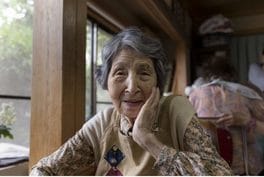 Amber Hancock-Burns Staff Writer When you see someone in a movie implant a tracking chip into someone else, you most likely ask yourself, what is wrong with them? These may be your thoughts but not the thoughts of Japan. Iruma, near Tokyo, has used the idea of microchipping someone to help track the elderly of the town. Iruma is using QR code stickers to help with the large amount of elderly with dementia. In this town, about three-thousand of the 39,500 people are living with dementia and sometimes wander away from their families without knowing how to return. The QR code is on a small sticker that goes on one’s fingernail and gives each wearer a registration number. The registration number is connected to the their hometown and the hometown’s city hall telephone number. If someone crosses paths with a wearer who does not know how to return home, they are able to scan the code with their phone. Once they scan the code, it will reveal their city hall’s telephone number, and they are able to find a way to get them back home.
This was made to hopefully connect more people with their family much faster than they previously were able to do. In Japan, their population of those living with dementia is rapidly growing with over 4.5 million people. Iruma has already tried a GPS tracking system in which the elderly would take their tracker with them, but this method failed due to the elderly forgetting to bring the tracker. The QR code sticker raised some concerns over private information being available to all who had a QR code reader, but the issue was resolved by Iruma not connecting their name or address to the code. With only a registration number and city hall’s telephone number, no one’s information is given, and one’s privacy remains intact. Yukiko Sano, a spokeswoman from Orange Links who made the QR code sticker, says they developed the sticker due to not knowing whether or not an elderly person would need medical attention when they were found, allowing police to save time and potentially lives. Comments are closed.
|
Archives
March 2017
Categories
All
|

